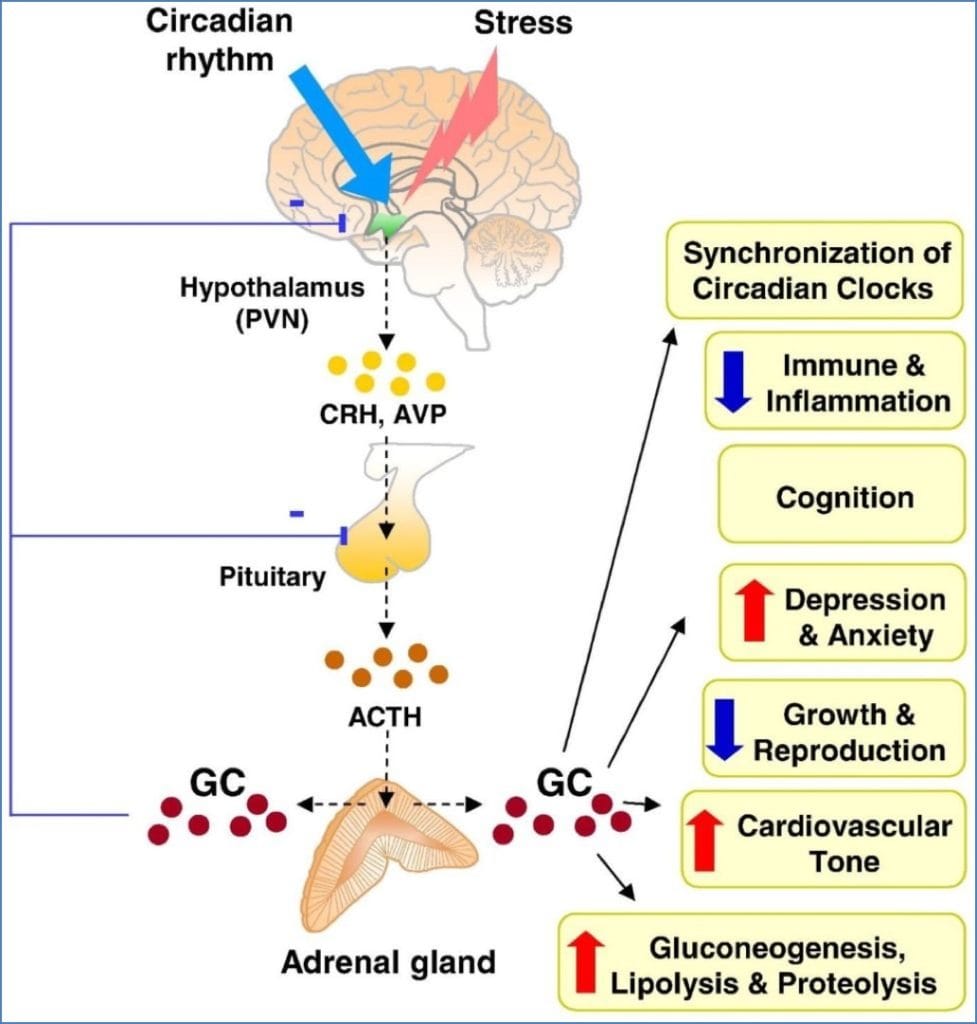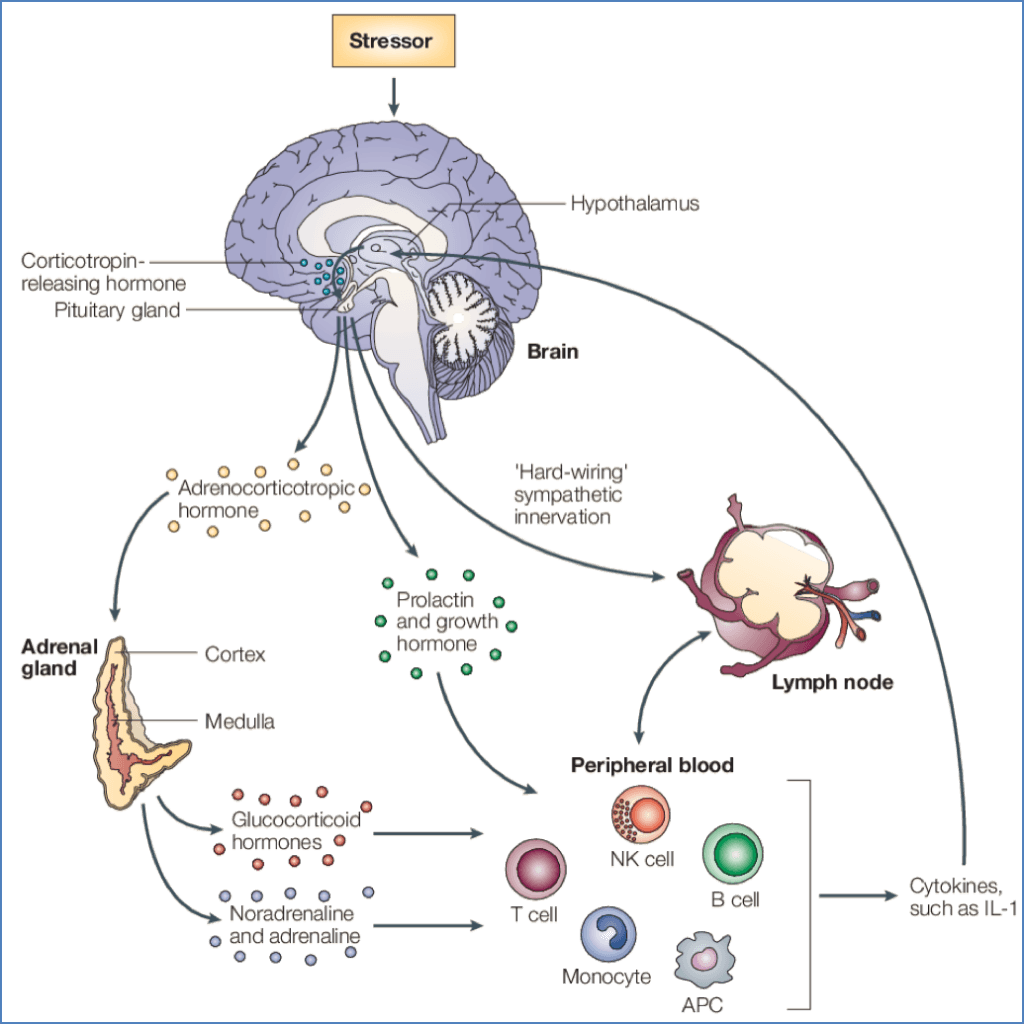Table of Contents
Overview – Physiological Stress Response
The physiological stress response is a complex adaptive system involving the hypothalamic-pituitary-adrenal (HPA) axis, sympathetic nervous system, and immune modulation. Acute and chronic stress initiate distinct endocrine and neuroendocrine pathways to maintain homeostasis, but prolonged stress may result in immune suppression and organ dysfunction.
Definition
- The physiological stress response is the body’s coordinated reaction to internal or external stressors.
- Involves rapid neuroendocrine activation to maintain homeostasis under physical, emotional, or metabolic threat.
- Primarily regulated by:
- Hypothalamic-pituitary-adrenal (HPA) axis.
- Sympathetic nervous system (SNS).
- Adrenal gland secretions (glucocorticoids and catecholamines).


Stress Activation Pathway
- Stressors: Internal or external stimuli activate sensory receptors.
- Hypothalamus: Receives input and:
- Activates sympathetic pathways.
- Releases corticotrophin-releasing hormone (CRH).
- Anterior Pituitary: CRH stimulates release of adrenocorticotropic hormone (ACTH).
- Adrenal Glands: ACTH and sympathetic activation stimulate:
- Catecholamine secretion (adrenaline, noradrenaline).
- Glucocorticoid secretion (primarily cortisol).


Metabolic Actions of Adrenaline (Fight-or-Flight)
- ↑ Glycogenolysis (liver) → ↑ blood glucose.
- ↑ Glycogenolysis (muscle) → fuels skeletal muscle, generates lactate for gluconeogenesis.
- ↑ Lipolysis (adipose tissue) → ↑ free fatty acids.
- Overall: ↑ energy substrate availability during acute stress.


General Adaptation Syndrome (GAS)
Proposed by Dr. Hans Selye to describe the body’s predictable stages in response to stress:
1st Stage: Alarm Reaction
- Initial acute stress response.
- Fight-or-flight activation:
- ↑ Sympathetic nervous system.
- ↑ Adrenal catecholamine secretion.
- Energy redirected away from digestion and immunity toward immediate muscular activity.
2nd Stage: Resistance Stage
- Body adapts to ongoing stress with sustained elevated function:
- ↑ Cortisol secretion.
- Persistent sympathetic and catecholamine activity.
- High metabolic demand continues.
3rd Stage: Exhaustion Stage
- Prolonged stress leads to system failure:
- ↓ Adaptive endocrine and neuroendocrine functions.
- Organ breakdown.
- Illness or death may result if unresolved.
Universal signs of chronic stress (observed by Selye):
- Adrenal cortex enlargement.
- Lymphoid tissue atrophy.
- Gastric and gastrointestinal ulcers.


Immune System Effects of Stress
The immune response to stress is biphasic:
Acute Stress (Adaptive Phase)
- Temporary enhancement of innate immune function:
- ↑ Granulocyte, macrophage, and NK cell activity.
- ↑ Complement proteins and acute-phase reactants.


Prolonged Stress (Shift to Humoral Immunity)
- ↓ Type-1 helper T-cell activity (cellular immunity).
- ↑ Type-2 helper T-cell activity (humoral antibody production).
Chronic Stress (Immunosuppression)
- Global suppression of immune function.
- Impaired cellular and humoral immunity.
- Increased vulnerability to infections and chronic diseases.


Summary – Physiological Stress Response
The physiological stress response involves coordinated activation of the hypothalamic-pituitary-adrenal axis and sympathetic nervous system, ensuring survival during acute stress but posing health risks when chronically activated. For a broader context, see our Endocrine Overview page.